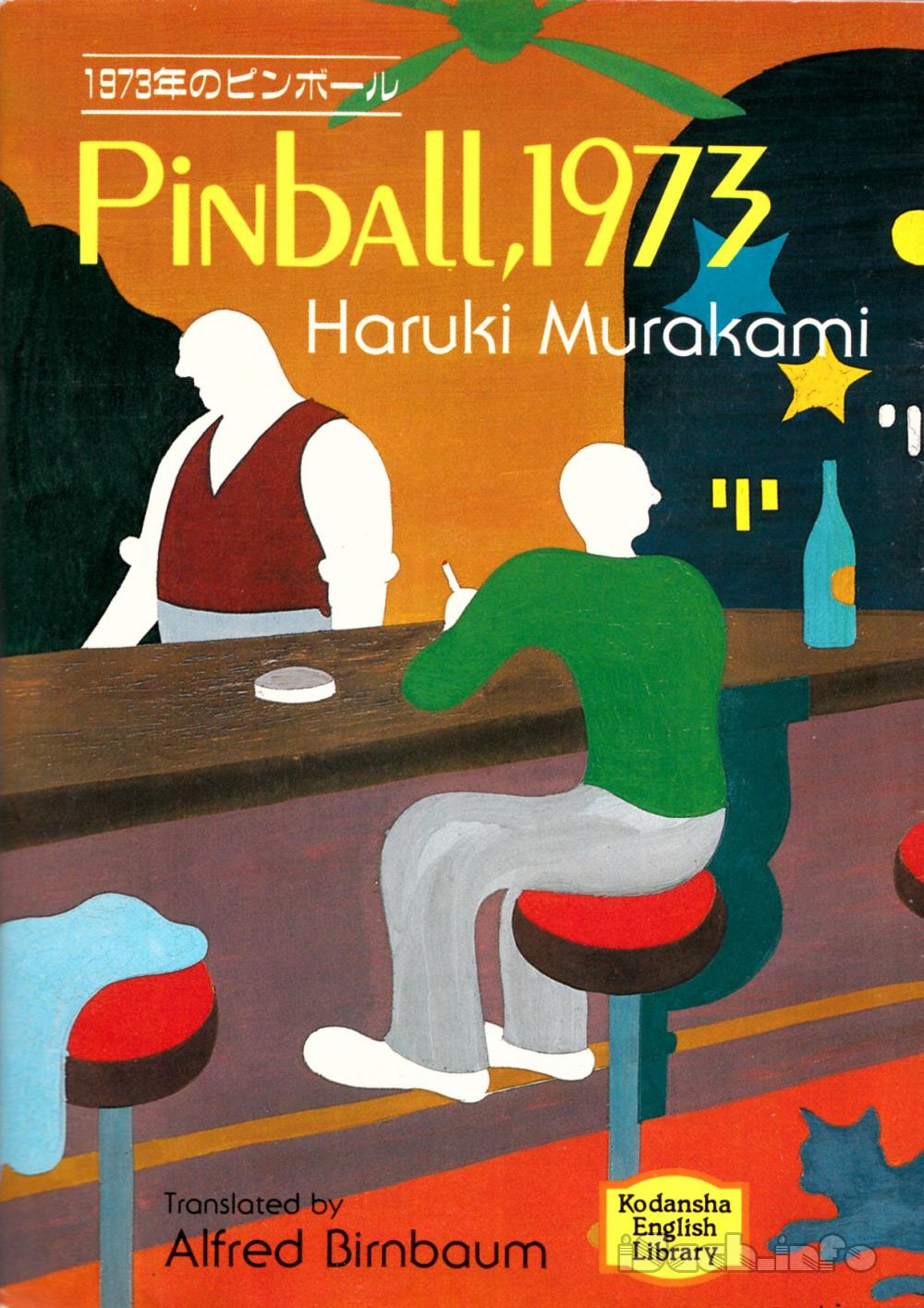Chapter 12
T
hursday morning that same week, I put on my first sweater of autumn. A totally undistinguished gray sweater, slightly frayed under the arms, but still quite comfortable. I shaved myself a sight more neatly than usual, put on heavy cotton slacks, and pulled out my scuffed-up desert boots. They somehow looked like two trained puppies at my feet. The twins buzzed around the room gathering together my cigarettes and lighter and wallet and train pass.I sat down at my desk in the office, and sharpened six pencils while I sipped the coffee the office girl brought me. The whole room was filled with a sweater-just-out-of-storage and pencil-lead smell.
Lunchtime, I ate out and once again played with the Abyssinians. I stuck the tip of my little finger through a gap in the showcase, and two cats vied with each other to jump up and bite me.
That day someone from the pet shop let me hold one of the cats. Its coat felt like fine cashmere, and it pressed a cold nose to my lips.
“It really cuddles up to people,” the shop attendant said.
I expressed my thanks and returned the cat to the case, then bought a box of cat food I couldn’t use. The attendant wrapped it up nicely, and as I walked out of the pet shop with it under my arm, the two cats stared after me as if trying to recall some fragment of a dream.
When I got back to the office, the girl brushed the cat hairs off my sweater.
“I was playing with a cat,” I offered by way of explanation.
“Your sweater’s all frayed under the arms.”
“I know. It’s been like that since last year. It got caught on the rearview mirror while I was trying to knock over an armored car.”
“Off with it,” she said, unamused.
I took off the sweater, and she sat beside the chair, her long legs crossed, and proceeded to darn it with black yarn. While she was mending the sweater, I returned to my desk, sharpened my pencils for the afternoon, and got back to work. Even if anyone saw fit to comment, you could hardly fault my work habits. I did exactly the work I was asked in exactly the prescribed amount of time, and did it all as conscientiously as possible–that was my method. I surely would have been prized at Auschwitz. The problem was, I think, that the places I fit in were always falling behind the times.
But that probably couldn’t be helped. There was no going back to Auschwitz or twin-seater Kamikaze torpedo-planes. Nobody wears miniskirts any more, nobody listens to Jan and Dean. And when was the last time you saw a girl wearing a garter belt?
When the clock struck three, the office girl came to my desk as usual with hot green tea and three cookies. She’d mended my sweater beautifully.
“Say, could I have a little talk with you?”
“Go ahead,” I said, munching on a cookie
“About the trip in November,” she said, “how does Hokkaido sound?” We were planning to take a company trip, just the three of us.
“Not bad,” I said.
“Then it’s settled. Do you think there’ll be any bears?”
“Hmm, I imagine they’ll all be hibernating.”
She nodded, relieved “By the way, could you have dinner with me tonight? There’s a great lobster restaurant nearby.”
“Fine by me,” I said.
The restaurant was a five-minute taxi ride from the office in a quiet residential area. We sat down, and a black-suited waiter floated noiselessly across the woven palm-fiber carpeting to leave us with two menus the size of swimming pool paddle boards.
We ordered two beers before dinner.
“The lobster here is really good. They boil it live.”
I acknowledged this with a grunt and drank my beer. Her slender fingers toyed with the star-shaped pendant around her neck.
“If you’ve got something to say, you might as well come out with it before dinner,” I said. The moment I’d spoken, I regretted it. Happens every time.
She smiled slightly. Then, simply because it was a bother to put that one-tenth-of-an-inch smile back in its proper place, she kept it there on her mouth a while. The restaurant was so empty you could almost hear the lobsters waving their feelers.
“Do you like your present job?” she asked.
“Hmm. You know, I don’t believe I’ve ever thought about work in that way. But I can’t say as I’m dissatisfied.
“Nor me, I can’t say I’m unhappy,” she said, taking a sip of beer. “The pay’s good, you two are both considerate, and I have a free hand at arranging my vacations.”
I didn’t say anything. It’d been a long time since I’d given a serious listen to someone else’s troubles.
“But I’m only twenty,” she continued, “and I don’t want to end up like this.”
Our conversation was temporarily brought to a halt while they arranged our dishes on the table.
“You’re young,” I said, “with everything still ahead of you, love, marriage. Your life’s going to go through 311 kinds of changes.”
“Nothing’s going to change,” she muttered, deftly wielding her knife and fork to crack the lobster shell. “Nobody’s going to take a fancy to the likes of me. I’ll spend my whole life assembling lousy roach traps and darning sweaters.”
I sighed. I felt as if I’d suddenly aged years.
“You’re cute, you’re attractive, you’ve got nice legs and a good head on your shoulders. You crack a mean lobster. Everything’s gonna work out just fine.”
A glum silence fell over her, and she continued eating her lobster. I ate my lobster, too. And all the while I thought about the switch-panel at the bottom of the reservoir.
“What were you doing when you were twenty?”
“I was crazy about a girl.” Back in 1969, our year.
“So what happened to her?”
“Things came between us.”
“Were you happy?”
“If you look at things from a distance,” I said as I swallowed some lobster, “most anything looks beautiful.”
By the time we’d finished our food, the place had begun to fill with customers, the clatter of knives and forks, and the screech of dragging chairs. I ordered a coffee, and she ordered a coffee and a lemon soufflé.
“How about now? You have a girlfriend?”
After thinking it over, I decided to exclude the twins. “No,” I said.
“And you’re not lonely?”
“I’m used to it. I’ve had practice.”
“Practice?”
I lit a cigarette and blew the smoke not half a yard above her head. “I was born under a strange sign. You see, whatever I’ve wanted I’ve always been able to get. But whenever I get that something, I manage to spoil something else. You know what I mean?”
“Kind of.”
“Nobody believes me, but it’s true. I only realized it myself three years ago. That’s when I thought, better just not want anything any more.”
She nodded. “And so that’s how you plan to spend the rest of your life?”
“Probably. At least I won’t be bothering anybody.”
“If you really feel that way,” she said, “why not live in a shoe box?”
A charming idea.
We walked side by side to the station. The sweater kept me comfortable in the night air.
“Okay, I’ll keep plugging away,” she said.
“Wasn’t much help, was I?”
“No, actually, it took a load off me just to be able to talk.”
We caught trains going in opposite directions from the same platform.
“You’re really not lonely?” she asked one last time. And while I was searching for a good reply, her train came.



 ePub
ePub A4
A4